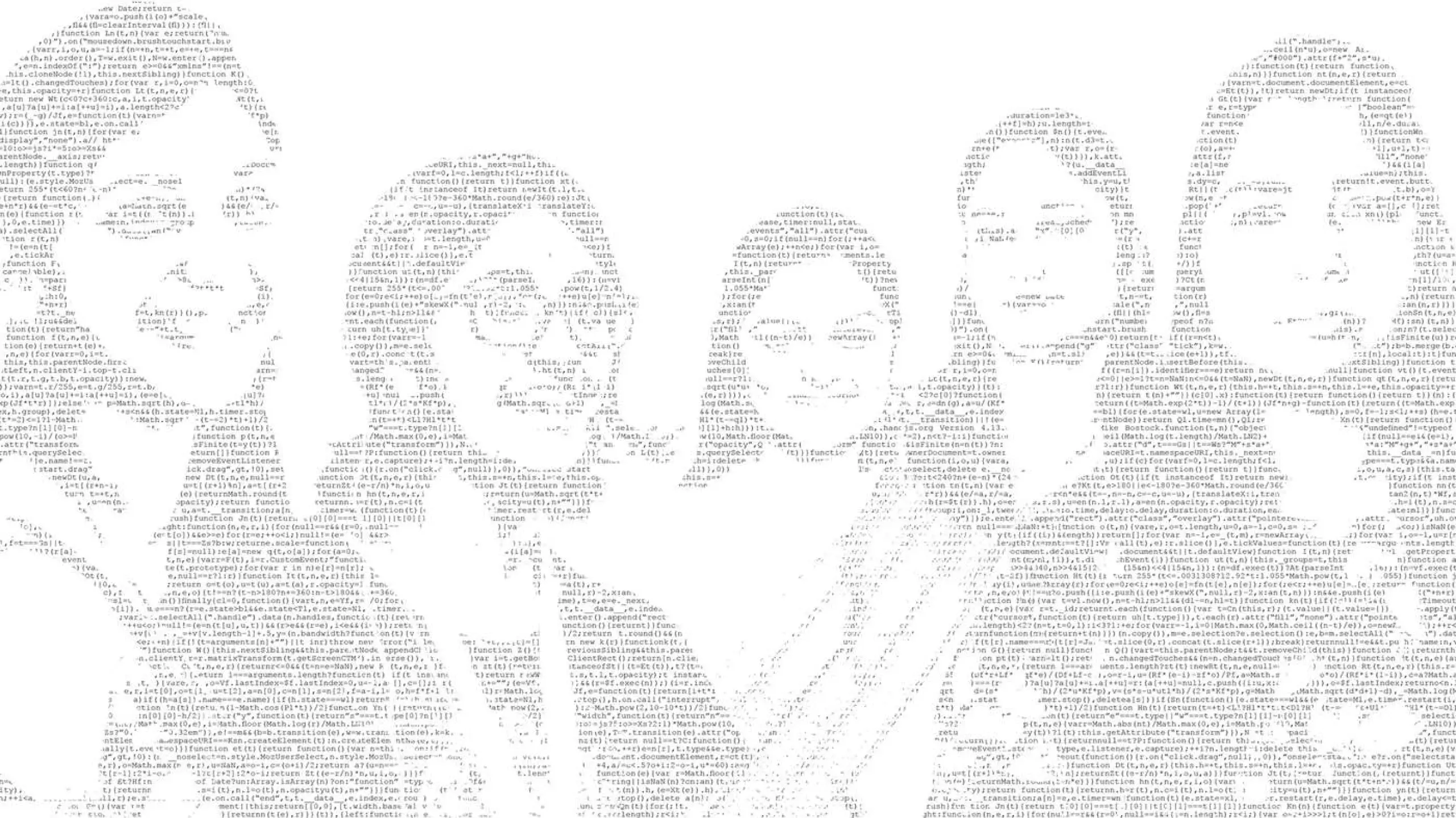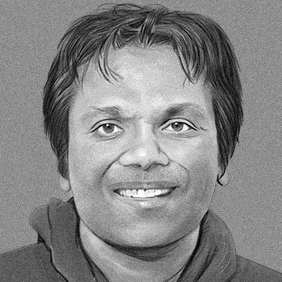“Shut the f**k up”
“Feminism sucks”
As Vaishali Thakker, a 23-year old open source programmer looked over the hall filled with around 200 people, she didn’t know how to react to what she had just heard. Thakker was one of the five women on the stage at PyCon India 2017, a conference on the use of the Python programming language, in New Delhi. The topic of the discussion was “Women in open source.”
As the women started discussing the open source projects they had been working on, the challenges and so on, someone from the audience got up and drew the attention of the gathering to the wi-fi hotspots in the hall.
They were named “Shut the fk up” and “Feminism sucks”.
“It was right on our faces,” remembers Thakker.
“It’s disheartening when you’re talking about the problem, someone is actually giving a proof that it (gender bias) indeed is a problem. In a way, I found it funny, because how stupid can you be to give the proof that the problem actually exists (talking about the sexist names of WiFi hotspots in a New Delhi conference.)”
by VAISHALI THAKKAR
Oracle, Linux Kernel Contributor, Age 23
For their part, the organisers were upset and even warned the audience. But the event had no code of conduct for anyone to really penalise or expel the culprits.
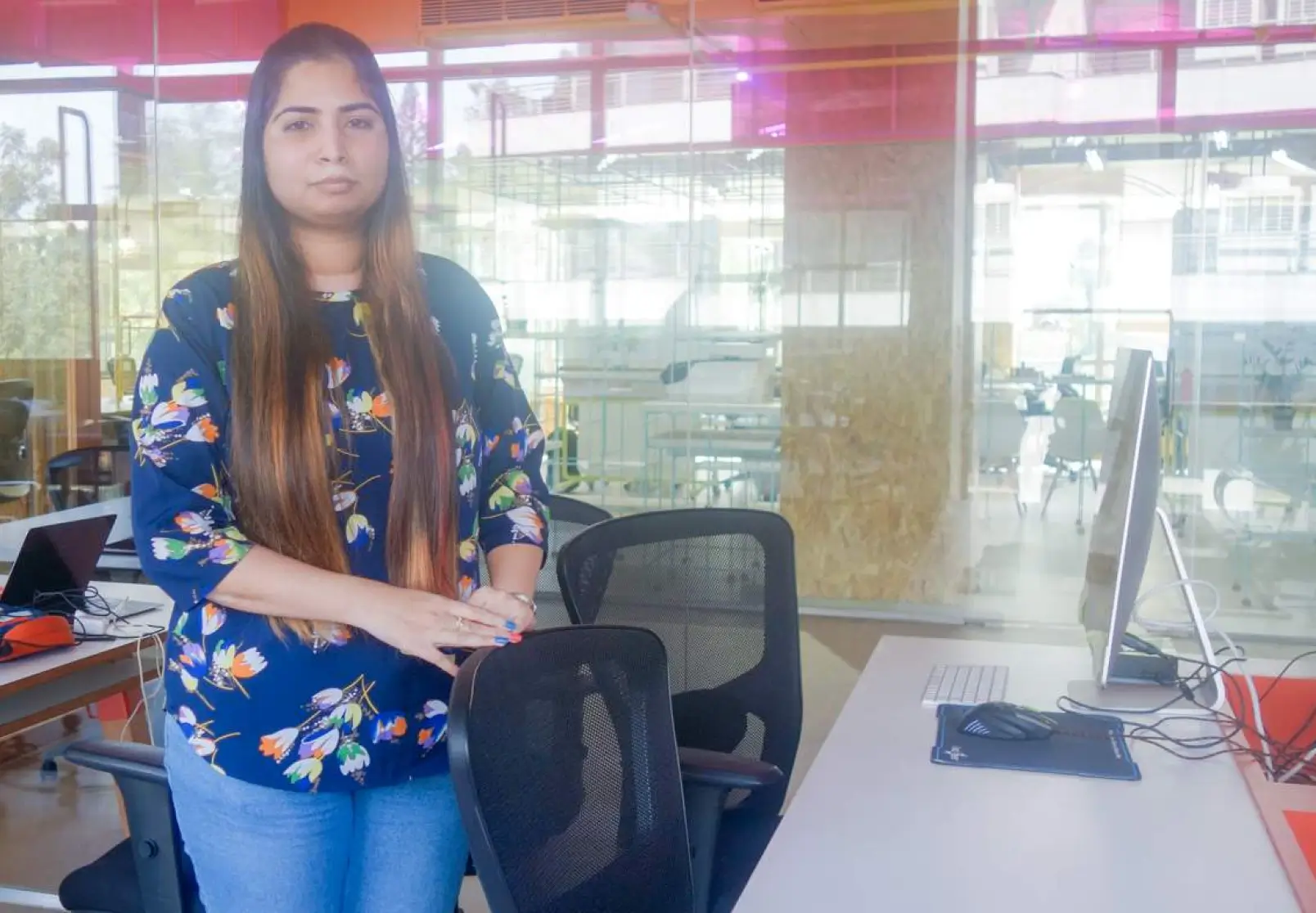
And how. It’s just been three years in her coding career but she is familiar with the high wall that gender stereotyping puts up in the world of software scripting. More so in her chosen field of coding.
Thakker is among a small – but fast-growing – set of women coders from India shaping the future of several open source platforms globally including the Linux kernel, the core software program behind the world’s biggest eponymous open source software. Linux, the most popular and mainstream platform in the free and open source software, popularly referred to as FOSS world, powers Google servers to NASA’s rockets, and competes with Microsoft’s Windows, which is a proprietary product. In India, systems powering the Bombay Stock Exchange and platforms such as the Credit Information Bureau India Ltd, better known as CIBIL, are built and run on Linux.
In a year when campaigns such as #metoo challenged bro-cultures at the workplace and there is a stronger push for gender diversity on tech office premises, India’s next generation of women open source contributors are beginning to make a mark globally. Outreachy, a not-for-profit global program aimed at bringing under-represented communities into open source programming, now sees nearly half of its fellowships awarded to women from India — the highest among participating countries. Data for previous years was not furnished.
The December 2017-March 2018 cohort, for instance, has 17 Indian women – and one of Indian origin based in Melbourne – from the 42 that Outreachy has chosen. They include interns from Almora to Roorkee, Bhubaneswar to Goa, Mohali to Serampore in West Bengal, besides those from the big cities of New Delhi, Bengaluru, and Hyderabad.
Not so open after all?
In the open source software development world ruled by the demigods such as Linux founder Linus Torvalds, it’s a long and uphill battle for women to make a mark and make their contributions count.
And that has nothing to do with the adoption of open source by organisations and businesses globally.
The world’s biggest companies – including Citibank, Airbus, Exxon Mobil and Wal Mart to India’s BSE – use it and open source software counts some of the most diverse users across different industries.
Yet, the developers contributing code to the open source community are from diverse. For instance, in a random survey of around 5,500 respondents from over 3,800 open source projects on software development platform GitHub last year, it was found that women formed a mere 3% of the community.
The reason? Feeling unwelcome, getting stereotyped based on gender-biased mindsets and even facing unsolicited sexual advances.
“The advantage of being a part of an open source community is that I get direct feedback for my work from the users vis conferences, posts and this constant feedback keeps me motivated.”
by NOOPUR GUPTA
IBM, Java Development Tool Project Contributor, Age 29
“Women are more likely than men to encounter language or content that makes them feel unwelcome (25% vs 15%) as well as stereotyping (12% vs 2%) and unsolicited sexual advances (6% vs 3%). Unsurprisingly, women are also more likely than men to seek out help directly (29% vs 13%) from people they already know well (22% vs 6%), rather than ask for help from strangers in a public forum or channel,” said the Open Source Survey, conducted by GitHub together with other partners from academia and the open source communities
Open source contributors don’t yet reflect its broad audience
- The gender imbalance in open source remains profound:
95% of respondents are men; just 3% are women and 1% are non-binary .
68% women (vs 73% men) are very interested in making future contributions, but less likely to say they are very likely to actually do so (45% vs 61%). - Along other dimensions, representation is stronger:
1% of respondents identify as transgender (including 9% of women in open source). 7% as lesbian, gay, bisexual, asexual, or another minority sexual orientation. 26% are immigrants and 16% are of ethnic or national minorities in the country they currently live. - Women are more likely than men to encounter language or content that makes them feel unwelcome (25% vs 15%) as well as stereotyping (12% vs 2%) and unsolicited sexual advances (6% vs 3%).
- Unsurprisingly, women are also more likely than men to seek out help directly (29% vs 13%) from people they already know well (22% vs 6%).
- Collaboration between strangers is one of open source’s most remarkable aspects: strive to build a community where everyone feels welcome to participate.
- Half of contributors say that their open source work was somewhat or very important in getting their current role. Open source work helps people build their professional reputation.
- Improving contributor representation can help create a more representative tech sector overall.
Source: The Open Source Survey an open data project by GitHub conducted in 2017
Initiatives such as Outreachy and Linux Foundation are beginning to bring about a change, even if it’s moving the needle just that bit. For instance, Julia Lawall, a research scientist with Inria and a mentor to newcomers at Outreachy, says her interns from India have contributed over 100 patches to the kernel so far. Lawall, who has contributed over 1,000 patches on her own in the Linux kernel so far, is talked of highly by the likes of Thakker and Bhumika Goyal, 22, an open source coder I did a podcast with.
“From outside open source and Outreachy looked very intimadating at first, but then in my third year. I decided to give it a shot anyway. I chose Linus Kernel because it required knowledge about C language, which I was good at.”
by BHUMIKA GOYAL
Independent, Linux Kernel Contributor, Age 22
“The interns from India all show a lot of independence and enthusiasm in their work. Many I have supervised have worked on code cleanups, typically resulting in over 100 patches to the Linux kernel,” says Lawall in an email interview.
Over past two months, we interviewed at least two dozen people from within and outside the open source community to identify a set of women open source contributors from India. While the list is not conclusive by any measure, it’s a good starting point in identifying the women who are quietly shaping the future of open source from this part of the world and how they dealt with gender biases.
Meet the dozen
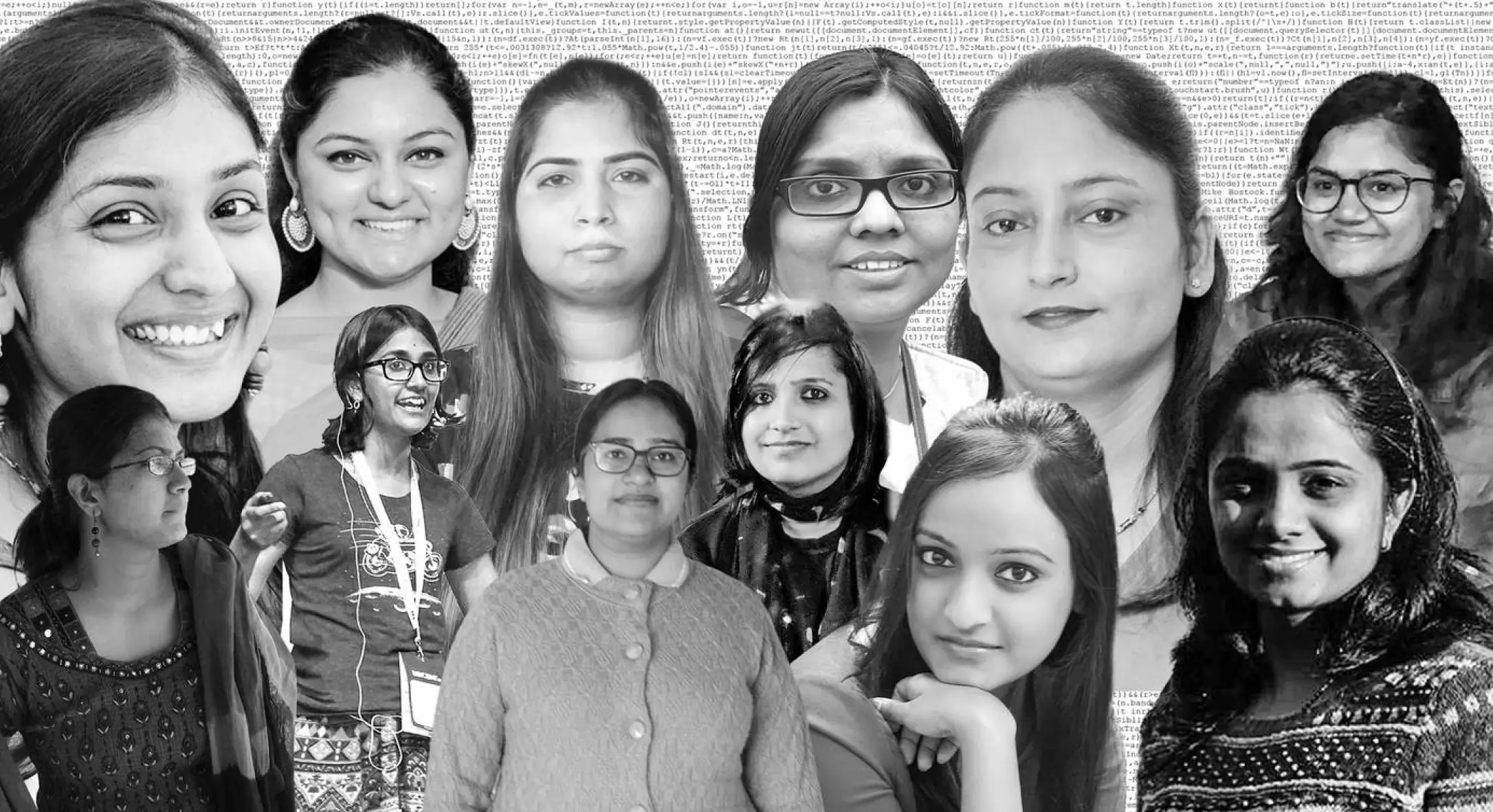
Sameera Deshpande-Dalal, 35, can easily pass off as another software programmer, working at one of India’s thousands of software code shops. But with over 100 contributions to open source compiler (a program that converts software code into machine-level instructions so that the processor can execute them), Deshpande-Dalal, mother of a 15-months-old boy, says support at home made a big difference.
“Sometimes I feel, when they (women) are in this field they are more aggressive because they want to prove that they are as good as their male counterparts,” she says, adding she has not faced gender bias at work yet.
“I feel girls are not short on talent, its just that they have to stick around.”
by SAMEERA DESHPANDE-DALAL
Linaro, Contributor At GNU Complier Collection
“Sometimes it becomes difficult if you have a maternity leave, you’re disconnected for six months from everything and you cannot complain about it because the child needs you,” she says.
How did she cope? “I took my child to office with me, and my office supported that,” Deshpande-Dalal says.
Nisha Poyarekar, an open source developer who quit her job at Tech Mahindra in January 2016 to start Reserved-bit, a hackerspace in Pune, says the free and open ideology behind open source attracted her. Moreover, her husband Siddhesh who she was dating before getting married, was a hardcore open source evangelist. And that was a big influence, she admits.
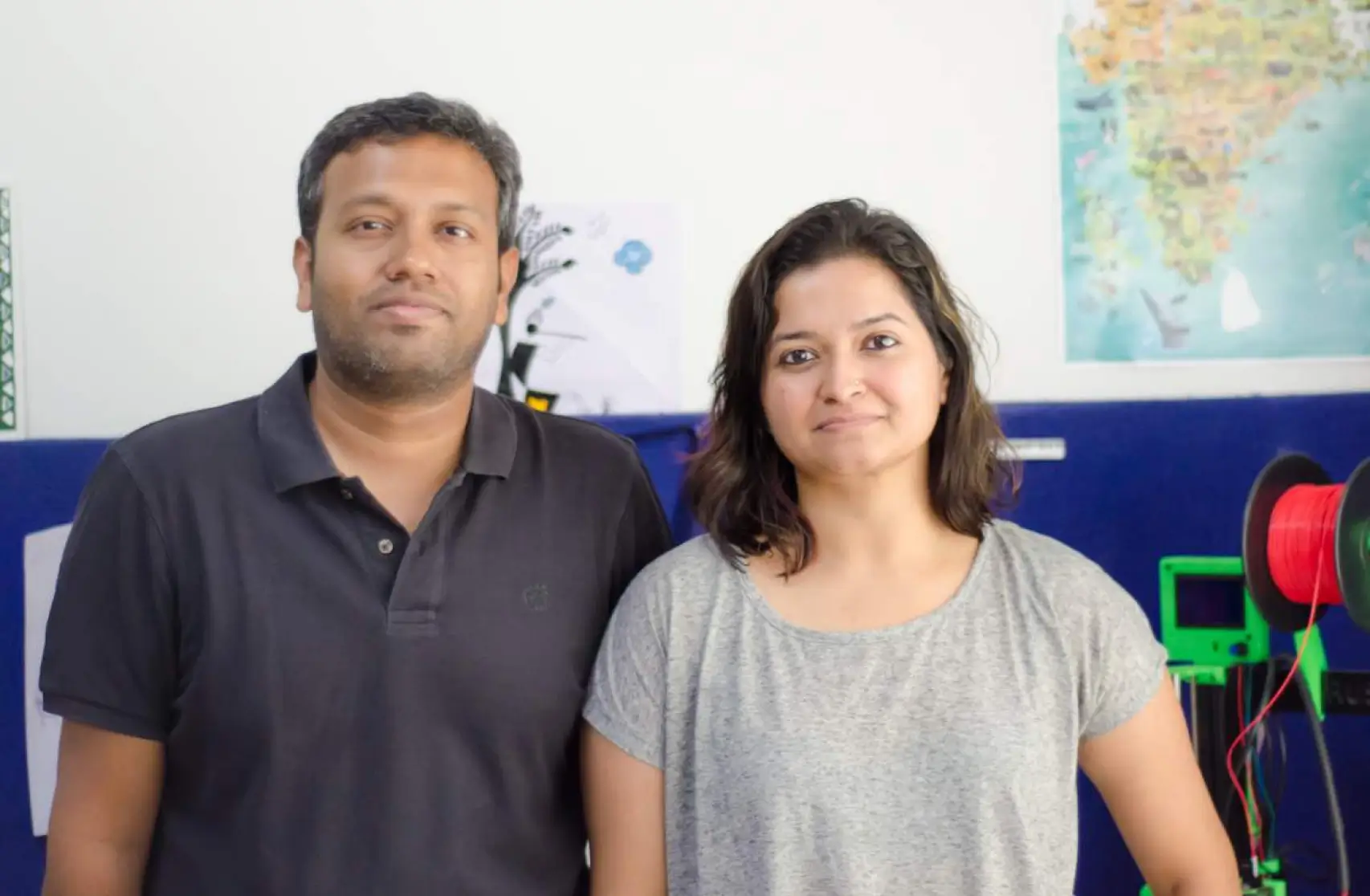
“Siddhesh wouldn’t even allow my mother in law to use anything but open source software. That’s how deep the influence was at home,” she says.
While Siddhesh still pursues his day job at Pune-based open source software company Linaro (he is Deshpande-Dalal’s colleague), the husband-wife duo curate meetups and events for Pune’s open source developer communities. On her part, Nisha is also an active member of the city’s PyLadies group, a community of women Python computing language developers.
“The confidence and self-assurance are lacking big time in the community and the participation also suffers,” says Poyarekar.
The challenge is that of having enough visible women rockstar contributors who inspire others to get more vocal about what they do and participate more actively in the community.
“From a male perspective, one of my concerns as a FOSS contributor has been the lack of coverage about women who are actually doing it. Vaishali, for instance, is vocal enough but then not a lot of women working on open source projects such as compilers are as vocal,” says Siddhesh.
“It’s almost as if they have a lot of other things to worry about than tech, and it’s (being vocal) not worth it,” says Siddhesh.
“My colleague Sameera (Deshpande-Dalal) has been working on open source compilers for over 10 years, is a GCC contributor with over 100 patches out there, really among the most brilliant contributors from India, and nobody knows about her,” he says. (GCC stands for the GNU Compiler Collection, a standard compiler for most UNIX-like operating systems.)
“My journey so far especially in the male dominated arena of Open Source has been full of ups and downs, but I strive to let these challenges ossify my determination to move ahead always.”
by JIGYASA GROVER
Independent, Pharo 4.0 Contributor, Age 22
Siddhesh also talks about Kirti Wankhede, another open source developer who actively contributes to kernel virtualization.
Wankhede, 38, now works at Nvidia as her day job.
“I personally feel there are two aspects: first and most important is how you present yourself to the world and then how the world looks up to you. If you present yourself the way you want to be, the world would look up to you the same way. Then you will not find biases in your surrounding,” she says.
“I believe when women take technical jobs they should take it as what will you do as a ‘technical engineer’ and not as ‘women as technical engineer’.”
by KIRTI WANKHEDE
NVIDIA, Linux Kernel And Device Drivers Contributor, Age 38
With nearly 500 patches contributed to the Linux kernel, Ahmedabad-based Goyal, 22, is another open source warrior.
“From outside, open source and Outreachy looked very intimidating at first, but then in my third year, I decided to give it a shot anyway. I chose Linux kernel because it required knowledge about C language, which I was good at,” she says. “Biases are there because at many places some people feel women aren’t good enough to code. But I haven’t encountered any such bias because the Linux kernel community is really good,” she adds.
What then stops woman from open source? Often, it is just taking the first step. For Divya K Konoor, 35, an open source engineer working with IBM, it was one night of coding when she actually became an open source contributor from just finding the bugs in the software.
“To be honest it took me a lot of guts to start my first community code contribution. I was reluctant because I was scared to jump into an ocean full of experts from across the world; I thought I would be judged and people in the community would be rude and I wouldn’t be able to swim too far.”
by DIVYA K KONOOR
IBM, Openstack keystone, Pycadf, Celimeter Contributor, age 35
But, one night in office, Konoor was about to let a colleague make a community fix that she had debugged when a female colleague and friend stopped her. “She said, ‘Divya, if you have debugged it, you should contribute to it.’ I sat up till 1 AM that night and finally made my first contribution.”
Like Thakker, who works with business software maker Oracle, other women open source contributors are actively encouraging women to join their tribe. Mumbai-based Manjula Dube, 26, is an active speaker and organizer of open source events. Dube, who works with online movie ticket booking platform BookMyShow, organises Mumbai Women Coders and Mumbai Javascript Meetup apart from speaking at open source conferences in Bengaluru, Berlin and Amsterdam.
“When it comes to having more women in open source, it’s not that we don’t have them. We have them in numbers but maybe they are just shy and want to still be in their comfort zone.”
by MANJULA DUBE
Bookmyshow, OS Project Contributor, Age 26
For Aruna Sankaranarayanan, an engineer with Mapbox, a company that makes customisable maps for third-party applications such as Pinterest, coding and introduction to open source platforms happened quite early. When she was 16, Aruna built a calendar app for the next 500 years. Later, from writing code that tracked internet shutdowns in India to an open source project to find Indian classical music on Wikipedia, she has been more like an open source missionary looking for problems to solve.
“I love the open source ideology – the principles behind giving your users the freedom to modify what you build and the spirit of community that creates,” she says.
“There are communities where explicit biases exist to this day around gender, race and even age. Many times it’s subtle and not overt – a lot of us have cultural differences – what’s appropriate in India may not be appropriate in the US and appropriate in the US and sometimes it can be awkward to have to be the person that is always trying to deal with the distance and opposed to just building something awesome.”
by ARUNA SANKARANARAYAN
Mapbox, Gnome Foundation, Gcompris Project & Wikipedia Contributor
Sankaranarayanan says using a software that you own and have community support on can have powerful outcomes. “Open source changed how I approached technology and convinced me very strongly of the impact that technology can have on social issues – be it tracking government shutdowns of data or helping map real-time flood data – the little that I can do with technology and my community have made me feel empowered.”
While coders like Deshpande-Dalal and Goyal – separated by over a decade in terms of age – deny facing any gender bias so far, many others point to the deep yet subtle undercurrent of stereotyping playing through their careers and life.
“Initially, when I started attending few of the community meetings, I was surprised to see I was the only woman participating. We certainly need to bring in more women into the Open Source community platforms and nurture the ecosystem with mentors”
by CHHAVI AGARWAL
IBM, Openstack Contributor, Age 36
Jane Herriman says stereotypes lead to not only differences in self-perception but also in skill acquisition between girls and boys. “Gender stereotypes – that boys are better at or more likely to like math, for example – cause the first dominos to fall. Even the toys that children are given (and have marketed to them) signal to boys more than to girls that engineering and tech are for them.
“I’ve always believed that we all must pay it forward, and one of the most fulfilling experiences for me was the opportunity to mentor an intern at IBM on Swift open source. The beaming smile on her face when she made her first successful contribution is the joy I will always carry in my heart.”
by MAMATHA BUSI
IBM, Foundation Library API For Swift Programming Language Contributor, Age 31
Playing with Legos, for example, will heighten spatial reasoning, which will later influence a child’s “aptitude” for particular types of math,” says Herriman, now a director of diversity at Julia Computing, an open source programming language, on email. She gives her own example. “I went to an all-girls high school that didn’t have a terribly strong math program. My science teachers were fantastic but you had to go to the all-boys school next door to take Advanced Placement Physics,” says Herriman, who completed her bachelors in chemistry from Carnegie Mellon and is now pursuing a Ph.D in material physics from Caltech. Julia Computing is her day job.
She talks about how she was one of two or three in a calculus class, who were taking the course for the first time rather than as a refresher. “I was alongside engineers who had apparently spent their childhoods taking apart radios to understand how they worked, when I didn’t even know how to use a screwdriver. I wanted to study physics but I decided against it because I assumed I wasn’t smart enough,” Herriman says.
The open crusade
For Thakker, who is aggressively organising women in open source meetups and is giving talks at colleges asking more women to join the movement, it’s a long crusade inspired by her own experience.
She applied for a three-month, $5,500-open source internship with Outreach in late 2014 but didn’t get through in the first attempt. “I asked my mentor Julia (Lawall) what went wrong, and she really helped with feedback And in the next round, I got through,” says Thakker.
Linux Foundation, Wikimedia (a not-for-profit foundation started by Jimmy Wales to fund Wikipedia and other projects), Gnome (a desktop environment for many open source platforms including Linux and Ubuntu) and several others are among top open source organisations offering their projects for internships run by different mentors at Outreachy.
“When a woman is not performing, (she is) judged because of being a woman. And, when a man is not performing, it’s just called a bad hire.”
by POOJA SHAH
Moengage, Alice, Rsa, Goober, Appium, Selenium Contributor, Age 28
Lawall says the open source movement in India, especially among women, has been spreading from school to school, thanks to the alumni such as Thakker and Tapasweni Pathak, a Mapbox coder, who have been actively campaigning for the women-in-FOSS cause.
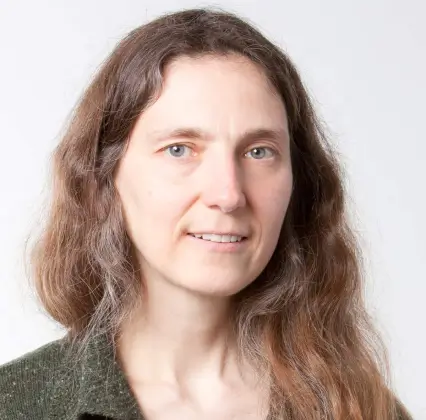
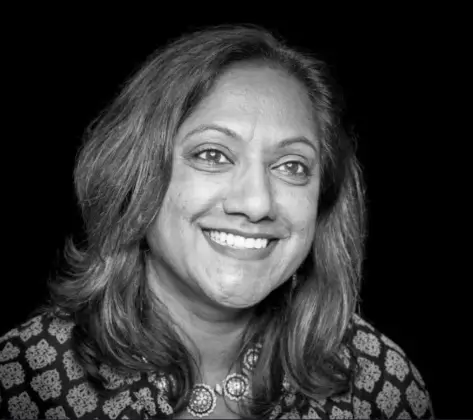
Still, the challenge in increasing the number of women in the Open Source community remains — the numbers are up but not enough. “Studies by Bitergia (a Madrid software analytics company in open source development) and Linux Foundation show that participation in projects is less than 10%. However, the Linux Foundation is seeing a higher attendance with the last Open Source Summit at 17- 18%,” says Nithya Ruff, a director on the board of Linux Foundation, thanks to efforts by the foundation focussed on women, on email.




